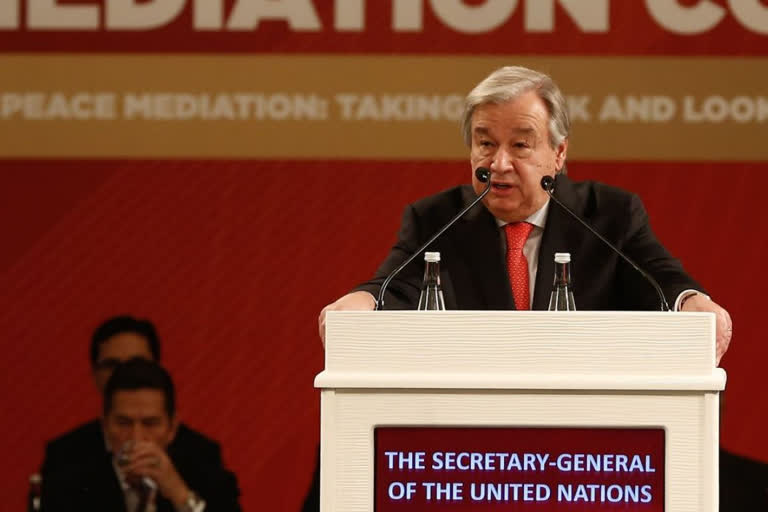बैंकॉक : संयुक्त राष्ट्र महासचिव एंटोनियो गुटारेस ने जलवायु परिवर्तन को जीवन की निरंतरता के लिए सबसे बड़ा खतरा बताते हुए समुद्र के बढ़ते जलस्तर पर गहरी चिंता जतायी है. उन्होंने कहा कि भारत, बांग्लादेश, चीन और जापान पर समुद्र का जलस्तर बढ़ने का सबसे अधिक जोखिम है.
आसियान शिखर सम्मेलन में शामिल होने बैंकॉक आए गुटारेस ने सोमवार को संवाददाताओं से कहा कि आज दुनिया में जीवन की निरंतरता यानी वर्तमान अवस्था में खुद को बनाए रखने की क्षमता के आगे सबसे बड़ा जोखिम जलवायु परिवर्तन है.
गुटारेस ने हाल में आई एक शोध केंद्र की रिपोर्ट का हवाला देते हुए कहा कि जलवायु परिवर्तन के चलते समुद्र का स्तर हमारे अनुमान के मुकाबले कहीं अधिक तेजी से बढ़ रहा है.
उन्होंने कहा कि अगर देशों ने इस रुझान को नहीं बदला तो शोध का अनुमान है कि 2050 से पहले 30 करोड़ लोग डूब जाएंगे या विस्थापित हो जाएंगे.
गुटारेस ने आगे कहा, 'आश्चर्यजनक रूप से इससे सबसे अधिक प्रभावित होने वाला क्षेत्र दक्षिण-पूर्वी एशिया है, जिसमें जापान, चीन, बांग्लादेश और भारत शामिल हैं.' उन्होंने आगे कहा कि थाईलैंड में दस प्रतिशत आबादी के डूब क्षेत्र में आने की आशंका है.
पढ़ें-RCEP करार में शामिल नहीं होगा भारत
उन्होंने कहा कि संयुक्त राष्ट्र सरकारों, व्यापार समुदाय, नागरिक समाज और स्थानीय अधिकारियों का ध्यान इस ओर आकर्षित करने के लिए प्रतिबद्ध है कि बढ़ते तापमान को तत्काल नियंत्रित करने की आवश्यकता है.



